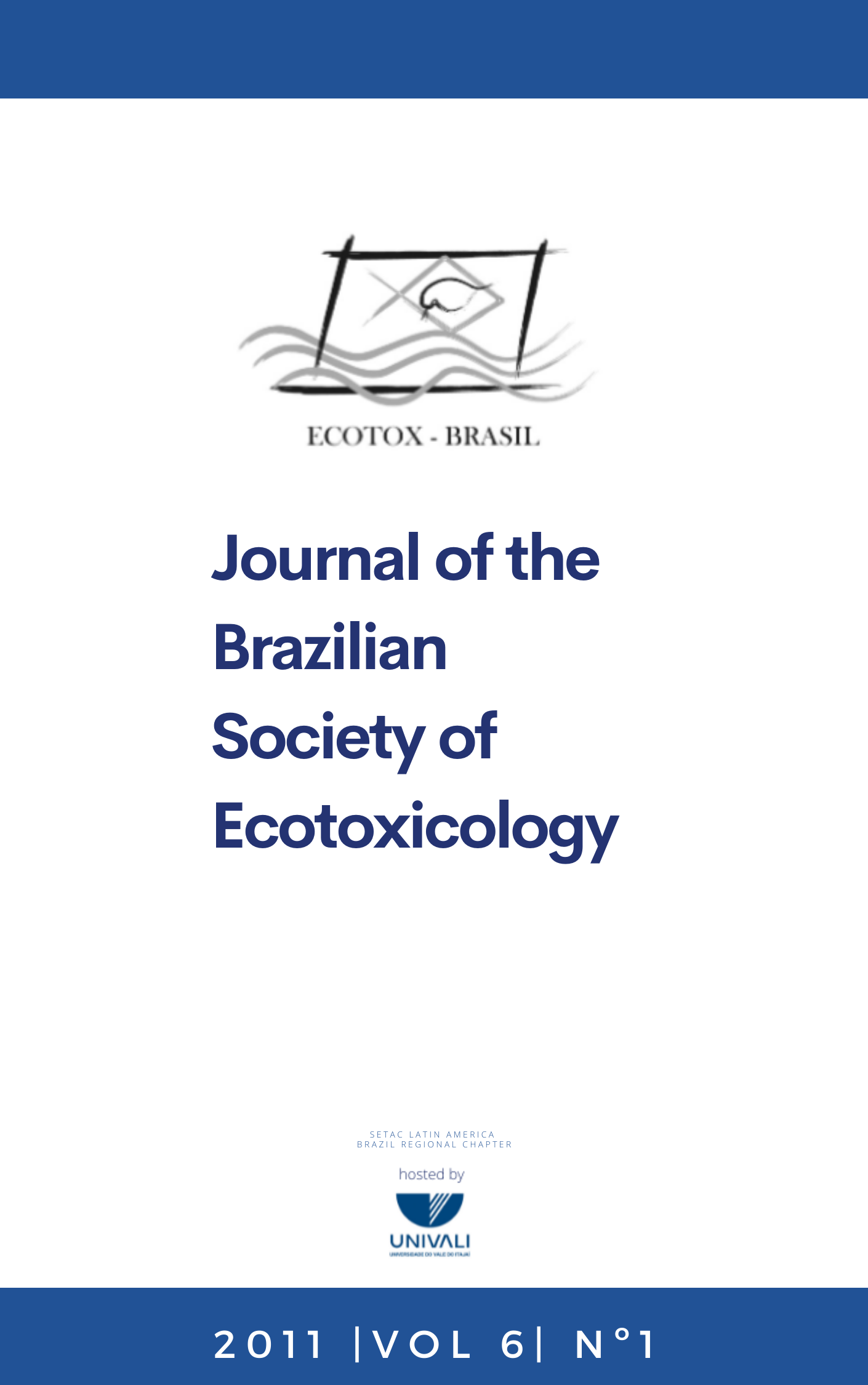Toxicity of Organophosphate Insecticide Abate® to Larvaes of Poecilia reticulata
Abstract
The pesticide Abate®, which contains 1% of organophosphate temephos as active ingredient, has been used to control the larva of the mosquito responsible for dengue. However, little information is available about the impact of this pesticide in the aquatic environment. This study evaluated the effect of the Abate® on the survival of larvaes of Poecilia reticulata, a larvivorous fish that serves as biological control of Aedes aegypti. In order to estimate the lethal time for 50% of exposed larvae (LT50), the organisms were exposed to five treatments (0.0; 0.375; 0.5; 0.625 and 0.750 mg.L-1 of Abate®) with nine replicates each. Concentrations equal or higher than 0.375 mg.L-1 of Abate® showed to be lethal to larvaes of P. reticulata. LT50 was estimated for the 2nd larvae was 239 ± 41 minutes for a concentration of 0.750 mg.L-1 and 401 ± 104 minutes for 0.375mg.L-1. In addition, larvaes that survived to the Abate® exposure presented mortality after transference to clean water, indicating a possible residual effect of the insecticide.
Keywords: Organophosphorus pesticides, Poecilia reticulata, LT50.
Downloads
How to Cite
Issue
Section
License
Copyright © 2006 ECOTOX-Brasil
Copyright notice: It is a condition for publication that manuscripts submitted to this journal have not yet been published and will not be simultaneously submitted or published elsewhere. By submitting a manuscript, the authors agree that copyright for their article is transferred to the Sociedade Brasileira de Ecotoxicologia (ECOTOX-Brasil) if and when the article is accepted for publication. The copyright covers the exclusive rights to reproduce and distribute articles, including reprints, photographic reproductions or any other reproduction of a similar nature, including translations. No part of this publication may be reproduced, stored in a retrieval system or transmitted in any form or by any means, electronic, mechanical, photocopying, recording or otherwise, without permission of the publisher.
Notice: While every effort is made by the EEC, editors and editorial board to see that no inaccurate or misleading data, opinions or statements appear in this journal, they wish to make it clear that the contents of the articles and advertisements published herein are the sole responsibility of the contributors or advertisers concerned. Accordingly, the EEC, the editorial board and editors and their respective employees, officers and agents accept no responsibility or liability whatsoever for the consequences of any inaccurate or misleading data, opinion or statement.




